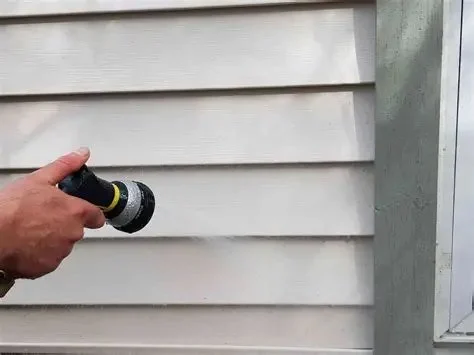
How to Maintain Your Siding Year Round
- 1-Importance of Siding Maintenance
- 2-Seasonal Siding Maintenance Tips
- 3-Common Siding Materials and Their Care
- 4-Signs You Need Siding Repairs
- 5-When to Call a Professional for Siding Services
1. Importance of Siding Maintenance
Your home's siding is one of the most important components for both aesthetics and protection. It acts as the first line of defense against the elements, preventing water, dirt, and pests from entering your home. Regular maintenance not only ensures your siding lasts longer but also helps to maintain the overall value of your property. Without proper care, you risk facing costly repairs or even replacements.
Maintaining your siding year-round is essential for preventing the buildup of mildew, mold, and other damage caused by weather. Proper maintenance can help you spot small issues before they become larger, more expensive problems, keeping your home safe and looking great. It's not just about washing the surface – there’s more to siding care than meets the eye.
2. Seasonal Siding Maintenance Tips
Different seasons bring different challenges for your siding. Here's how to tackle the maintenance needs of your siding throughout the year:

First Choice Constructors S&B LLC
FingervilleSpartanburg CountySouth Carolina
10241 Main St, Fingerville, SC 29338, USA
Spring Maintenance
After the harsh winter, spring is the perfect time to inspect your siding. Look for any cracks, holes, or signs of wear that may have developed due to freezing temperatures. Remove dirt, leaves, and debris that may have accumulated around your siding, as this can cause mold and mildew growth.
Summer Maintenance
Summer is a great time to clean your siding thoroughly. High-pressure washing is a great option for vinyl or metal siding, while a mild detergent and soft brush can clean wood or fiber cement siding. Be sure to inspect for any signs of fading, warping, or cracking caused by intense sunlight.
Fall Maintenance
As the weather cools down and leaves start to fall, it's essential to keep your siding clear of debris. Check for any loose panels or trim that might need securing before winter. It's also a good time to check for signs of damage caused by summer storms.
Winter Maintenance
Winter presents some unique challenges, such as the risk of ice dams forming along your roofline. Ensure that your gutters and downspouts are clear of ice and snow to prevent water from backing up onto your siding. Inspect for any damage caused by ice or snow buildup, as it can lead to moisture penetration if left unchecked.
3. Common Siding Materials and Their Care
Different siding materials require different maintenance practices. Here’s a breakdown of the most common materials and their care needs:
Vinyl Siding
Vinyl siding is durable and low-maintenance. Regular washing with a garden hose and mild detergent can remove dirt and grime. Avoid using high-pressure washers as they can damage the siding.
Wood Siding
Wood siding requires more care than vinyl. It should be inspected regularly for signs of rot, warping, or insect damage. You’ll also need to paint or stain the wood periodically to prevent moisture damage and preserve its appearance.
Fiber Cement Siding
Fiber cement is known for its durability and resistance to the elements. It requires occasional cleaning and inspection for damage. Make sure to repaint every 5-10 years to keep it looking fresh.
Metal Siding
Metal siding, whether steel or aluminum, is highly durable but can suffer from rust or dents. Clean regularly with a gentle cleaner and check for signs of rust, especially along seams or corners where water can accumulate.
4. Signs You Need Siding Repairs
Sometimes, even with regular maintenance, your siding may require repairs. Here are a few signs to watch out for:
- Cracking or Warping: Cracks or warping indicate that your siding is compromised and may need replacement or repairs.
- Peeling Paint: Peeling paint on wood siding can be a sign of moisture damage.
- Mold or Mildew Growth: Mold or mildew growing on your siding indicates trapped moisture, which can cause further damage if not addressed promptly.
- Increased Energy Bills: If your energy bills rise, it may be due to gaps or cracks in your siding that allow air to escape.
5. When to Call a Professional for Siding Services
While regular maintenance can address many issues, sometimes it’s best to call in a professional. Here are a few situations when you should reach out to a siding expert:
- If you notice significant damage to your siding that cannot be fixed with simple repairs.
- If your siding is outdated and no longer provides the insulation and protection your home needs.
- If you’re planning to sell your home and want to increase curb appeal with a professional siding installation or repair.
For expert siding services and the best products for your home, consider visiting Total Roofing Hub for recommendations on reliable services and top-quality materials to ensure your siding lasts year-round.


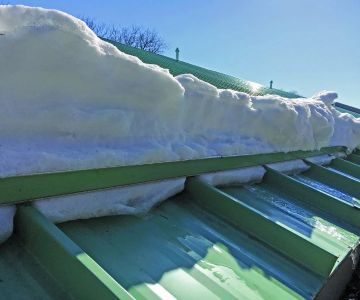
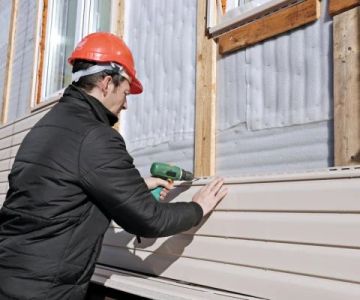
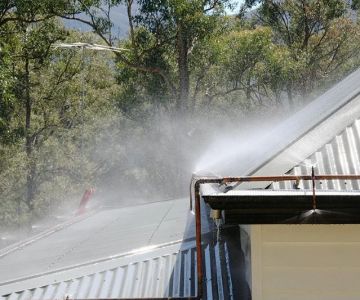
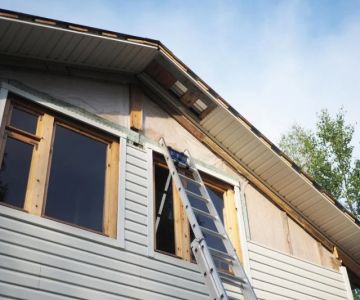
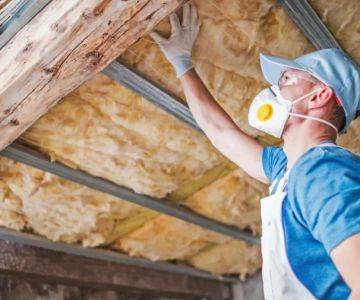
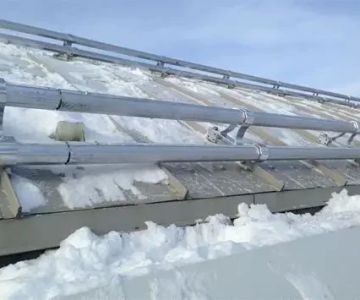
 Skyline Designs Roofing5.0 (99 reviews)
Skyline Designs Roofing5.0 (99 reviews) Perfect Roofing Installations4.0 (60 reviews)
Perfect Roofing Installations4.0 (60 reviews) Dog Tags Construction LLC4.0 (16 reviews)
Dog Tags Construction LLC4.0 (16 reviews)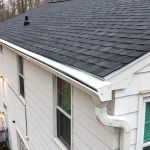 Gutter Shutter of Central Maryland5.0 (9 reviews)
Gutter Shutter of Central Maryland5.0 (9 reviews) Sam Cline Handyman Services4.0 (37 reviews)
Sam Cline Handyman Services4.0 (37 reviews) Paramount Builders Inc.4.0 (302 reviews)
Paramount Builders Inc.4.0 (302 reviews)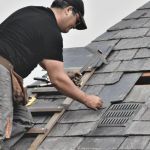 Should I Repair or Replace My Roof?
Should I Repair or Replace My Roof? Top 10 Signs Your Roof Needs Immediate Repair Before It’s Too Late
Top 10 Signs Your Roof Needs Immediate Repair Before It’s Too Late The Pros and Cons of Vinyl Siding: Is It the Right Choice for Your Home?
The Pros and Cons of Vinyl Siding: Is It the Right Choice for Your Home? How to Choose a Reliable Roofing Contractor Near You – Expert Tips
How to Choose a Reliable Roofing Contractor Near You – Expert Tips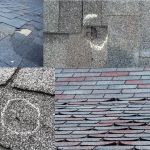 Top 10 Signs Your Roof Needs Immediate Repair You Shouldn’t Ignore
Top 10 Signs Your Roof Needs Immediate Repair You Shouldn’t Ignore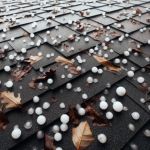 How to Spot Hail Damage on Your Roof | Quick Guide for Homeowners
How to Spot Hail Damage on Your Roof | Quick Guide for Homeowners